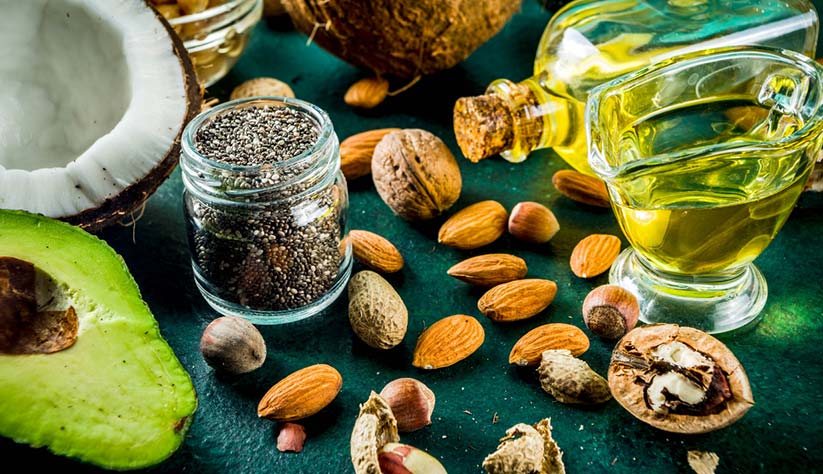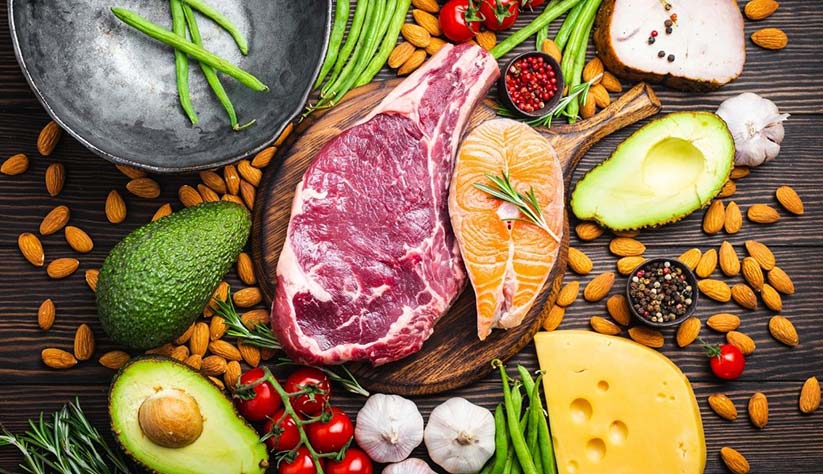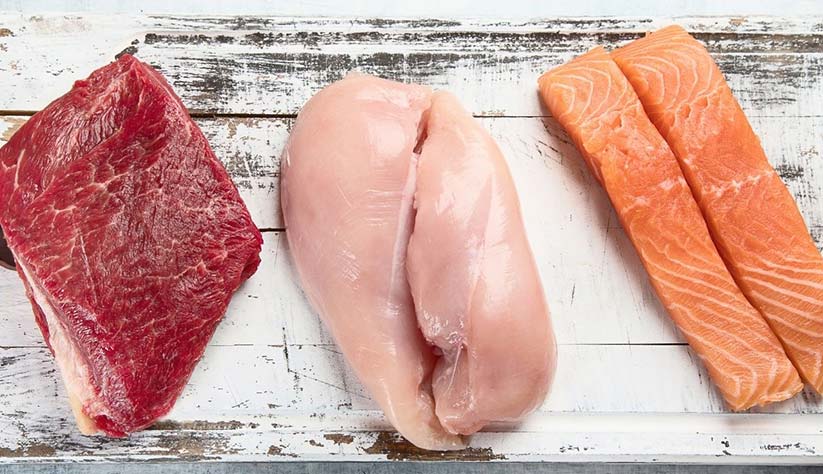It's a common misconception that eating carbs will make you gain weight no matter what. In reality, this is only true if the carbs come from the wrong places. In fact, high-carb diets can be healthy and beneficial for your body when they are sourced from nutrient-dense sources like fruits, starchy vegetables, legumes and intact whole grains.
In this article, we'll review the incredible benefits of a high carb diet that many people don't know about, which includes being the secret to reversing type 2 diabetes!
The Rise of Macro Counting
In recent years, the common person trying to get a handle on their health has moved past just counting calories to something called macro counting.
Macro counting is a method of counting macros, or "macronutrients," which are protein, fats, and carbohydrates. This approach to choosing a diet has gained popularity because it allows people to eat until they are full, rather than feeling like they need to limit themselves on portions, as long as they maintain a target balance of proteins, fats, and carbs.
Fats, Carbohydrates, and Proteins
Central to macro counting are the three basic macronutrients: proteins, fats, and carbohydrates.
Each of these macros has a different effect on the human body. Carbohydrates are the body's main source of energy; they are essential for the brain and nervous system, as well as other bodily functions.
Meanwhile, protein is what the body uses to build and repair muscle, tissues, skin, blood cells, etc.
Finally, fats are what the body uses to produce hormones, cell membranes, and absorb fat-soluble vitamins.
In moderation, all three macronutrients are healthy for the body, and the key to macro counting is to adjust.
The Current Fear Behind A High Carb Diet
Due to their function in the human body, carbs are typically thought of as less healthy than fats or proteins. In fact, high-carb diets have often been viewed with skepticism because it's believed that they can lead to weight gain when not managed correctly.
And in some ways, this is true. High-carb foods are often very calorie-dense and may be high in sugar, both of which increase the risk for weight gain or obesity when not eaten responsibly.
So why do we recommend a high-carb diet, rather than the low carb diet so many people espouse?
The Type of Carbs Matters
In order to understand this confusion between the low carb diet and diets high in carbs, you have to understand that there are multiple types of carbohydrates.
We've already identified the three most common types of macronutrients: carbs, protein, and fat.
However, carbohydrates are further broken down into two more categories - simple or complex.
Simple carbohydrates are sugars that can be found in things like candy bars and soft drinks. These processed carbohydrates are digested very quickly and lead to a rapid rise in blood glucose after being eaten.
On the other hand, complex carbohydrates are made from foods like fruits, starchy vegetables, legumes or intact whole grains, which have more fiber and take longer for your body to digest. This means that they don't cause as large of a spike in blood sugar levels when you eat them.
And as a bonus, these extra fibers and nutrients are fantastic for your body.
So while we do recommend a high-carb diet, we don't just mean any carbs. Specifically, we mean natural carbohydrates, which come from whole grains, nuts, seeds, fruits, and vegetables.
The Benefits of a High Carb Diet
And we don't recommend a high-carbohydrate diet just for their blood glucose benefits. High-carb diets have several benefits that you should know about.
Natural, Whole Carbohydrates Are the Key
First, we want to reiterate that when we talk about carbohydrates, we're not just talking about sugar or candy bars. Diets high in carbs should consist of natural, whole ingredients that came from the earth and aren't processed like "refined" carbs such as white bread and flour.
These complex carbohydrates give you long-lasting energy without making your body feel sluggish because they take longer to digest.
Studies have shown that people who eat whole grains and complex carbohydrates, like oats or quinoa, tend to be healthier than those who rely on processed carbs for their energy needs. High-carbohydrate diets can also help you maintain a healthy weight by making you feel full longer because of all the fiber in these foods!
More Easily Available Energy
One of the biggest reasons we like to recommend a high-carbohydrate diet is for energy. High carbohydrate foods are excellent sources of quick, ready-to-use energy that your body can easily access when you need it most!
Carbohydrates give us a burst of energy because they're directly processed and sent into the bloodstream as glucose - also known as blood sugar - which our cells can use as fuel.
Since foods that are high in carbs are packed with energy, they're often the body's go-to source when you need a quick boost of energy - whether that be from physical activity or just in your day-to-day life! These high-carbohydrate diets are also great for athletes because carbohydrates provide quick bursts of energy that can be used during intense physical activity to help you train harder!
Access to Key Nutrients and Minerals
Natural carbs also tend to have a higher nutrient profile than their low-carb counterparts because they usually contain more vitamins, minerals, and antioxidants. In fact, these foods contain a wider variety of vitamins and minerals that you wouldn't be able to get from other food groups.
For example, fruits are great sources of many important nutrients like vitamin C, b vitamins, potassium, magnesium, and calcium - all of which have been shown to support energy production in the body!
Lower Calorie Density -- No Portion Control Needed!
Focusing on plant-based, natural carbs has another key benefit: because these carbs are lower in calories, they allow you to eat more!
For instance, a medium-sized piece of fruit contains about 100 - 200 calories while a small cookie will have around 200 - 400. So by choosing the fruit instead of the cookie, not only do you get all key nutrients and minerals that your body needs but also you get to eat more of it because the calorie density is so much lower!
High-carbohydrate diets are great for weight loss and maintenance, allowing you to feel satiated and energized the right way, without feeling weighed down.
Avoiding Higher Risk Foods
One of the final reasons we recommend these natural sources of carbohydrates as your main energy is that it helps reduce the risk of heart complications and other chronic conditions in the long term.
Foods high in fats and processed sugars are associated with a higher risk of many chronic diseases, such as type 2 diabetes and heart disease. High-fat diets can also cause inflammation throughout the body - something that we definitely want to avoid!
We'll explain a little bit more about why the high-fat, low-carb diet is a bad idea.

Debunking the Fad of the Low-Carb, High-Fat Diet
One of the most popular diet fads right now is the low-carb diet. This is the science behind keto, Atkins, most paleo, and a number of other diets, and are often seen as a way to lose weight fast.
And while the low-carb diet has been shown to help people lose weight in the short term, when these diets are followed long-term (i.e., for over a year), studies show that they're not very effective at helping with lasting weight loss or preventing chronic diseases like diabetes.
In fact, many health professionals have started to realize that the long-term risks of a low-carb diet may be disastrous in the long term.

The Deceptive Weight Loss Results
One of the biggest benefits of a low-carb diet (at least as touted by its supporters) is that it can result in quick weight loss.
However, the reason why these diets are so effective for this purpose is that they're usually very calorie-restrictive and often don't provide enough calories to sustain an individual over the long term. So people lose weight because of the lack of available energy rather than actually changing their eating habits or lifestyle!
The Long Term Heart Health Risks
However, the results have begun to show that this high-fat diet is actually a terrible idea for heart health, and people on a low carbohydrate diet have been shown to have a higher risk of cardiovascular disease, including coronary artery disease.
When you really think about it, this makes sense because diets high in fat (even healthy fats like omega-three fatty acids) increase the production of cholesterol.
High levels of LDL (bad cholesterol ) are associated with an increased risk of having a heart attack or stroke!

Why It's a Bad Idea For People Living with Diabetes
Keto and the like are even worse for people with diabetes! This is another place where short-term results are deceptive, because by reducing your intake of carbs/sugar, you do notice a clear decrease in your blood sugar levels!
However, the cost is that you're drastically increasing your insulin resistance, which means that any return to eating foods high in carbohydrates will skyrocket your sugar levels, lead to weight gain, and can leave you in a worse place than you were before you tried low carb diets!
So What About Protein?
Protein is a very important nutrient that our body needs to build muscle, repair cells and tissues, and keep us satiated. It's very important, but we have two important caveats to this source of energy.
Eating too much protein in the long term can also put stress on your kidneys if you're not careful!

And second, there are a number of risks associated with eating meats, especially processed and red meats, which are a very common source of protein. High intake is associated with an increased risk of heart disease, diabetes and stroke!
For this reason, we recommend a balanced intake of protein, carbohydrates and fat from natural sources like vegetables, fruit, legumes/beans/lentils, and intact grains.
Your body will thank you!
Using a High Carbohydrate Diet to Master Diabetes
Why High Carb Seems Doubly Scary for People With Diabetes
With the recent rise in popularity of macro counting, people living with diabetes are often left wondering how they can manage their diet when it comes to carbs.
After all, many tend to assume that if someone is diabetic or pre-diabetic then they must be on a strict low carb intake plan.
And on the surface level, this might make sense. After all, carbohydrates become glucose, and the main problem with diabetes is a high level of blood glucose.
So shouldn't you reduce your carb intake in order to fight diabetes?

Understanding Insulin Resistance
In order to understand this seemingly contradictory conclusion that you should use a high-carb diet to combat diabetes, you have to understand the major condition that underlies all forms of diabetes -- insulin resistance.
Insulin resistance is the buildup of dietary fat in cells that are not meant to store it. In turn, this causes cells to reject glucose from your bloodstream (since they're focused on burning that fat), which means that your body has to pump more and more insulin in order to "convince" your cells to accept the new glucose.
This "insulin resistance", is what causes your blood sugar to rise.
Ultimately, this is why eating carbs actually help to fight diabetes. Over time, consistently feeding your body high-quality glucose allows your cells to burn through their excess fat and begin fueling themselves with glucose again, which means that your body has to spend less time trying to "demand" that your cells accept that glucose.
This, over time, helps return your blood glucose levels to normal.
Why A Low Carb Diet Doesn't Work
As we mentioned above, eating low carbohydrate foods is a great way to lower your sugar levels in the short term, but it can have disastrous results over time.

This is not an effective long-term strategy for people living with diabetes. Diets high in carbs are actually more beneficial over time because they help you fight insulin resistance and return your body's glucose metabolism back to normal!
Don't let the short-term results fool you!
Want to See A Carb-Rich Diet Working?
You can see exactly how carbs are beneficial to diabetics by watching the blood sugar levels of people with diabetes who eat a carbohydrate-rich diet.
Here at Mastering Diabetes, we call that our "A1C Miracle", and we've all experienced it at some point or another. Whether it was switching from low carb diets to low fat diets, finally getting rid of processed sugar intake, or just taking stock of our foods, the dietary changes of the Mastering Diabetes Method were the foundation of changing our lives.
And there are a number of other ways you can transform your health using the Method too!
Other Pillars of Mastering Diabetes
Apart from eating a low-fat, plant-based, whole-food diet, there are three major pillars of the Mastering Diabetes Method.

The second is intermittent fasting. Intermittent fasting is another great way to lose weight and reduce your insulin resistance through regular periods of calorie restriction, and it has great results for your overall health too!
The third is daily movement, which helps keep your body full of energy, and creates a positive healthy feedback loop where your cells demand more energy, you burn more fat, you lose weight and feel better, and then movement becomes more fun -- starting the cycle again!
And finally, our fourth component of the Mastering Diabetes Method in addition to the low-fat, high carb diet is decision trees, which are a great way to track your process and your progress as you take your life back from diabetes.
Our Favorite Foods for a Low-Fat, High Carb Diet
So what are some of our favorite foods to make your staples? Well, we're happy to say that you can always find a variety of fruits and vegetables on our plate!
Fruits like bananas, apples, mangos, pears or grapes are sweet treats that are great for any time of day! Vegetables such as broccoli and spinach go well with any meal -- so we often take those "side dishes" front and center! We also recommend lots of whole grain rice, sweet potatoes, lentils, legumes -- don't limit yourself!
Really, there's a ton of healthy options, and as long as you're focusing on natural carbohydrate intake, you'll be on the right track!

Learn More and Get Coaching
We understand that navigating the world of macros, low carb diets, and adjusted carbohydrate intake can be a complicated one! That's why we've got a whole team of coaches available to get into the "beans and potatoes" of a low-fat, plant-based, whole-food diet and the exercise that goes into reversing insulin resistance..
If you'd like to learn more about how you can work with our team of expert coaches, you can learn more about the method and apply for a free discovery session on our website!
Lower Your A1c and Get to Your Ideal Body Weight ... Guaranteed

Your results are guaranteed. Join more than 10,000 ecstatic members today
Personalized coaching puts you in immediate control of your diabetes health, helps you gain energy, improves your quality of life, and reduces or eliminates your meds.




